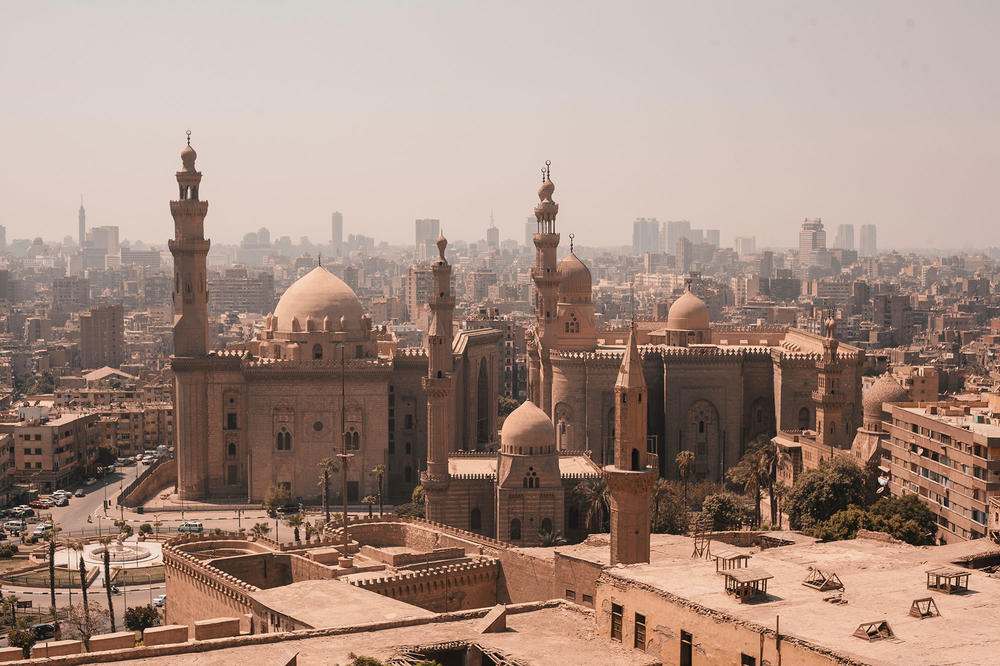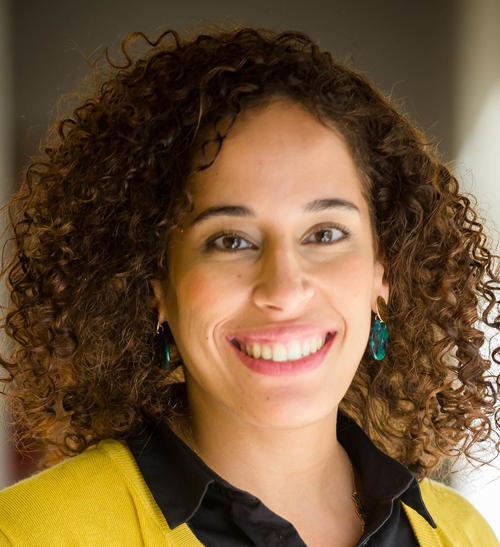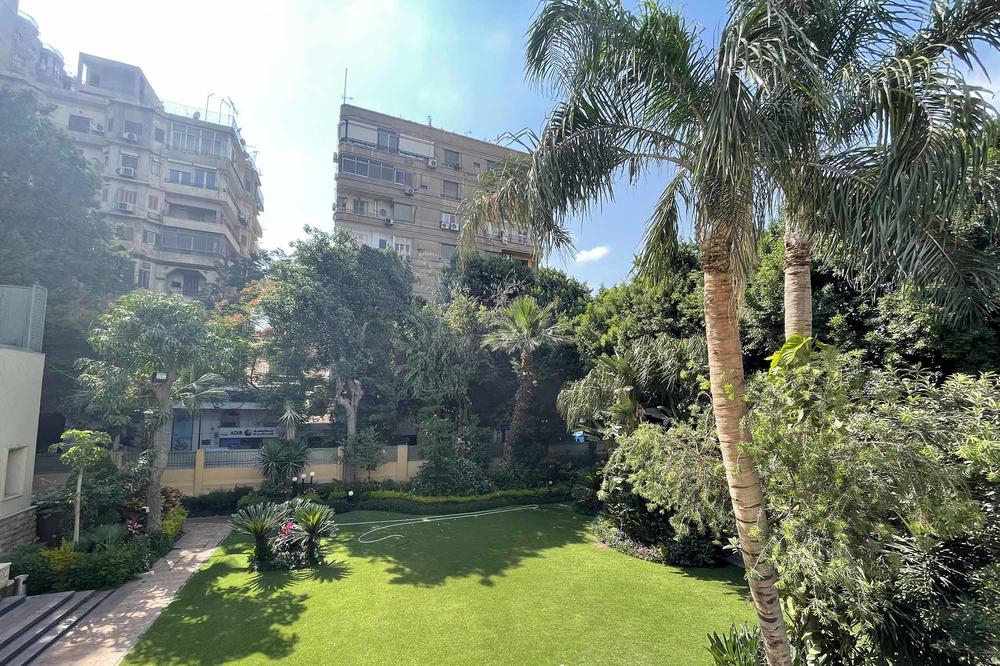What Exactly Does a Liaison Office Do?
Liaison office director Hoda El-Mahgoub met with campus.leben in Cairo
Sep 11, 2023
Egypt is an ideal place to conduct research, especially in the fields of archaeology, Arabic studies, Islamic studies, pharmacy, and geology.
Image Credit: Omar Elsharawy on Unsplash
When you think of Freie Universität Berlin, your mind probably goes straight to its campuses in Dahlem, Düppel, and Lankwitz. But in fact, the university extends far beyond the borders of Berlin – or even Germany – with four liaison offices in Cairo (Egypt), New Delhi (India), São Paulo (Brazil), and Tbilisi (Georgia). Separated by thousands of kilometers yet in close contact with each other, the liaison offices are dedicated to strengthening the university’s international network with other institutes of research and higher education around the globe.
Outside it’s already dark; the sun set around 7:30 p.m. A laptop screen lights up the bus edging its way closer to Cairo. But the clacking sound of fingers hurriedly typing on a keyboard indicates that this person is not just kicking back with a series on Netflix. In fact, they are hard at work on this almost three-hour return journey from a business trip to Alexandria. “That should be it,” murmurs Hoda El-Mahgoub, as she sends an email with the final itinerary to a colleague in Berlin from the Engineering and Utilities Division, who themselves will be arriving in Cairo on a business trip in a few days.
If you’re a member of Freie Universität who travels to Egypt – whether it’s for a semester abroad or to carry out research – you’re sure to meet El-Mahgoub sooner or later. Born in Germany to Egyptian parents, El-Mahgoub spent ten years working for the German-Arab Chamber of Industry and Commerce before taking on the position of director at the liaison office in 2018. Her task is to promote student exchange and strengthen scientific cooperation between Freie Universität and Egyptian universities, with plans to expand the network into North Africa and the Middle East.
Egypt as a Research Hub
When El-Mahgoub receives guests in her office, she first takes them through the garden of the German Academic Exchange Service (DAAD) in Cairo, where the liaison office is also located – and with good reason. The garden, framed by swaying palm trees and replete with a perfectly trimmed and verdant lawn, is all the more impressive considering the fact that it lies at the heart of the busy neighborhood of Zamalek.
Hoda El-Mahgoub is the director of the Freie Universität liaison office in Cairo and hopes to expand the network within North Africa and the Middle East.
Image Credit: Michael Asaad
A box of dainty pastries laid out on the solid wood meeting table is another key item on the agenda when it comes to preparing for visitors. The presence of delicious treats at meetings is par for the course, as Egyptians are renowned for their hospitality. What’s unusual about the setup today, however, is that space around the meeting table normally isn’t as tight because El-Mahgoub is the only employee who actually goes into the office; her colleague mostly works from home.
But this is one of the rare occasions when she needs to shift around some furniture to accommodate six guests who want to discuss the final details of the panel discussion that will take place in an hour. They will be talking about metabolic syndrome, a cluster of conditions that are connected to body weight, high blood pressure, high blood sugar, high “bad” cholesterol, and low “good” cholesterol, which can result in a greater risk of cardiovascular disease. The managing director of an Egyptian pharmaceutical company, an employee from the Egyptian Drug Authority, and four researchers from the Institute of Pharmacy at Freie Universität Berlin who have traveled to Cairo to instigate collaborative projects all sit around the table. The researchers from Freie Universität Berlin will be staying here for a week and are visiting four universities to talk to their Egyptian counterparts about student exchanges and potential joint research projects.
A Springboard for Scientific Cooperation between Europe and Africa
El-Mahgoub has organized the individual meetings and will also attend them personally. As a trained pharmacist, she will actually moderate the panel discussion on metabolic syndrome. Part of her work includes tackling prejudices and preconceptions, as many people either know Egypt as the land of pyramids and pharaohs or from negative headlines in the news. That is why one of her greatest challenges lies in generating interest in Egypt as a location for research.
“For many German universities, cooperating with European and North American universities is essential. But Egypt also offers plenty of potential, especially in the fields of archaeology, Arabic studies, Islamic studies, pharmacy, and geology,” says El-Mahgoub. It could also serve as the ideal springboard for academic cooperation between Europe and Africa. “Egyptian universities are often better connected with central and southern African universities than Freie Universität Berlin.”
Major Interest in Germany among Egyptians
For a first-time visitor to Cairo, the city is a lot to take in. This is hardly surprising, seeing as about 22 million people live in the metropolis, with what feels like just as many cars. The state universities are cities unto themselves – about 400,000 people study at Al-Azhar University, which was founded in 950.
When Hoda El-Mahgoub receives guests in her office, she first takes them through the garden on the DAAD grounds in Cairo, where the liaison office is also located.
Image Credit: Anne Stiller
“Unfortunately, completing a degree in Egypt doesn’t guarantee you’ll get a job on the local labor market anymore,” says El-Mahgoub. That is why many qualified professionals end up emigrating. The brain drain has continued to grow over the last few years. Interest in Germany among professionals and students has remained consistently high; according to the DAAD over 6,000 Egyptians were studying in Germany in 2021 – twice as many as in 2016.
El-Mahgoub has noticed a strong interest in studying in Germany among visitors who stop by the Freie Universität stand at higher education fairs. They don’t just want to know about semester fees or which courses they have to take: “I get asked a lot of questions about day-to-day student life and living in Germany,” she says. One major difference is that students tend to live with their parents for longer in Egypt, while in Germany it is normal for them to move out of the family home as soon as they begin their university studies. This is all part and parcel of Hoda El-Mahgoub’s work: communicating between two cultural groups and bringing people together.
The original German version of this article appeared in campus.leben, the online magazine published by Freie Universität Berlin.
Further Information
- Liaison Office in Cairo
- campus.leben article from May 15, 2018 : “Building Bridges between Germany and Egypt. Hoda El-Mahgoub is in charge of the liaison office of Freie Universität in Cairo.”



